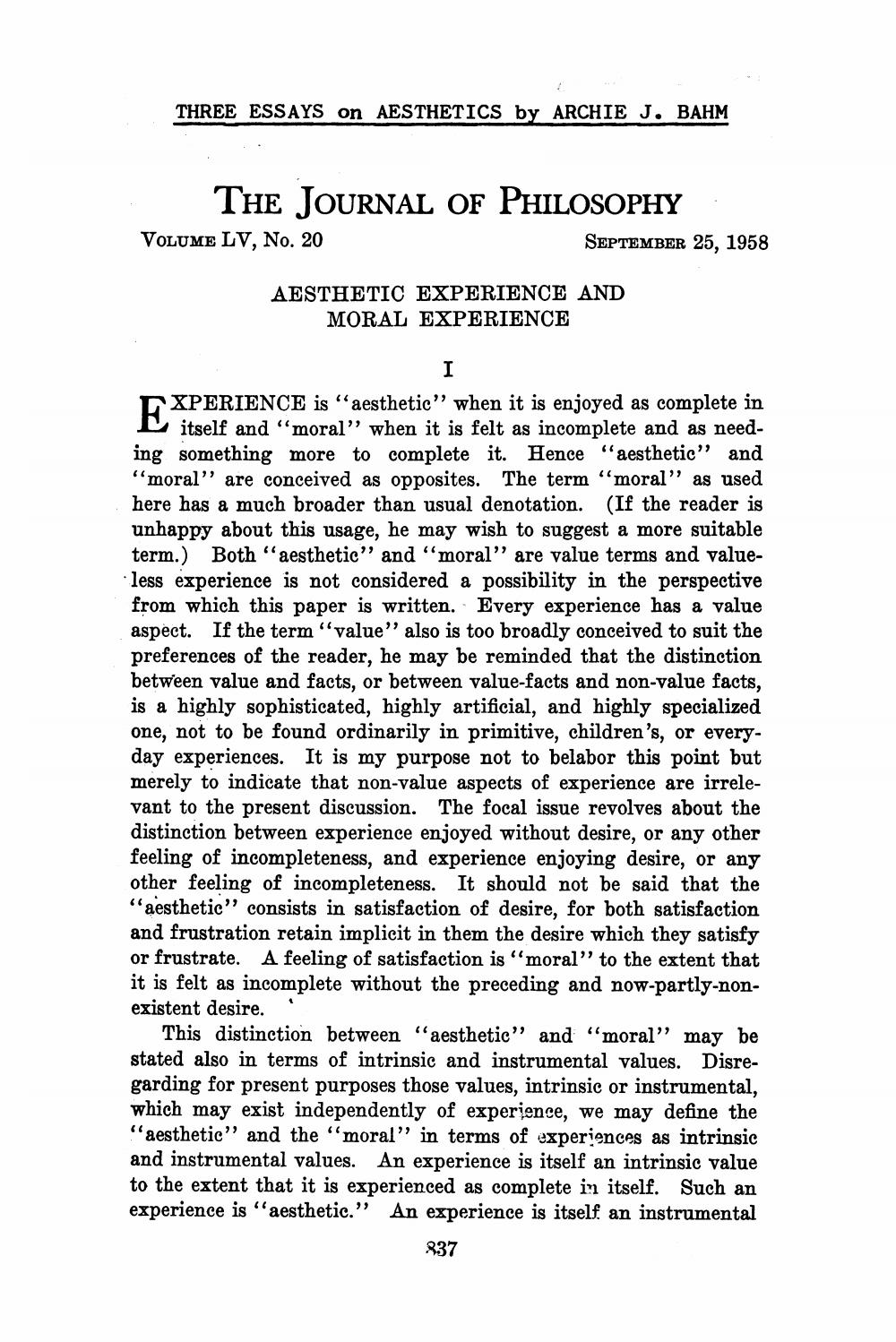Book Title: Three Essays On Aesthetics Author(s): Archie J Bahm Publisher: Archie J Bahm View full book textPage 1
________________ THREE ESSAYS on AESTHETICS by ARCHIE J. BAHM THE JOURNAL OF PHILOSOPHY VOLUME LV, No. 20 SEPTEMBER 25, 1958 AESTHETIC EXPERIENCE AND MORAL EXPERIENCE Ι TXPERIENCE is “aesthetic" when it is enjoyed as complete in L itself and "moral" when it is felt as incomplete and as needing something more to complete it. Hence "aesthetic" and "moral" are conceived as opposites. The term "moral" as used here has a much broader than usual denotation. (If the reader is unhappy about this usage, he may wish to suggest a more suitable term.) Both "aesthetic" and "moral" are value terms and valueless experience is not considered a possibility in the perspective from which this paper is written. Every experience has a value aspect. If the term "value" also is too broadly conceived to suit the preferences of the reader, he may be reminded that the distinction between value and facts, or between value-facts and non-value facts, is a highly sophisticated, highly artificial, and highly specialized one, not to be found ordinarily in primitive, children's, or everyday experiences. It is my purpose not to belabor this point but merely to indicate that non-value aspects of experience are irrelevant to the present discussion. The focal issue revolves about the distinction between experience enjoyed without desire, or any other feeling of incompleteness, and experience enjoying desire, or any other feeling of incompleteness. It should not be said that the "aesthetic' consists in satisfaction of desire, for both satisfaction and frustration retain implicit in them the desire which they satisfy or frustrate. A feeling of satisfaction is "moral" to the extent that it is felt as incomplete without the preceding and now-partly-nonexistent desire. This distinction between "aesthetic" and "moral" may be stated also in terms of intrinsic and instrumental values. Disregarding for present purposes those values, intrinsic or instrumental, which may exist independently of experience, we may define the "aesthetic" and the "moral" in terms of experiences as intrinsic and instrumental values. An experience is itself an intrinsic value to the extent that it is experienced as complete in itself. Such an experience is "aesthetic." An experience is itself an instrumental 837Page Navigation
1 2 3 4 5 6 7 8 9 10 11 12 ... 32
